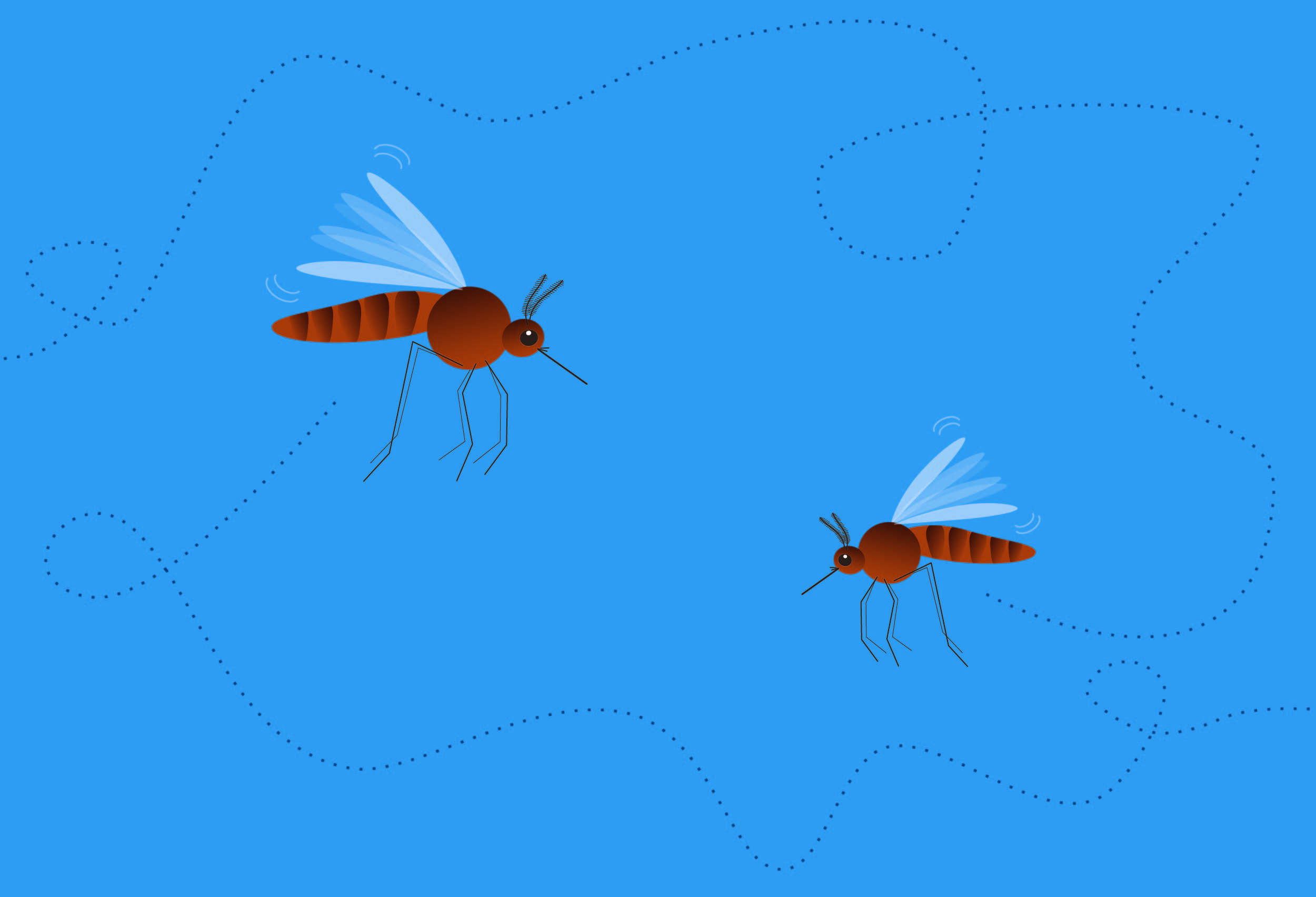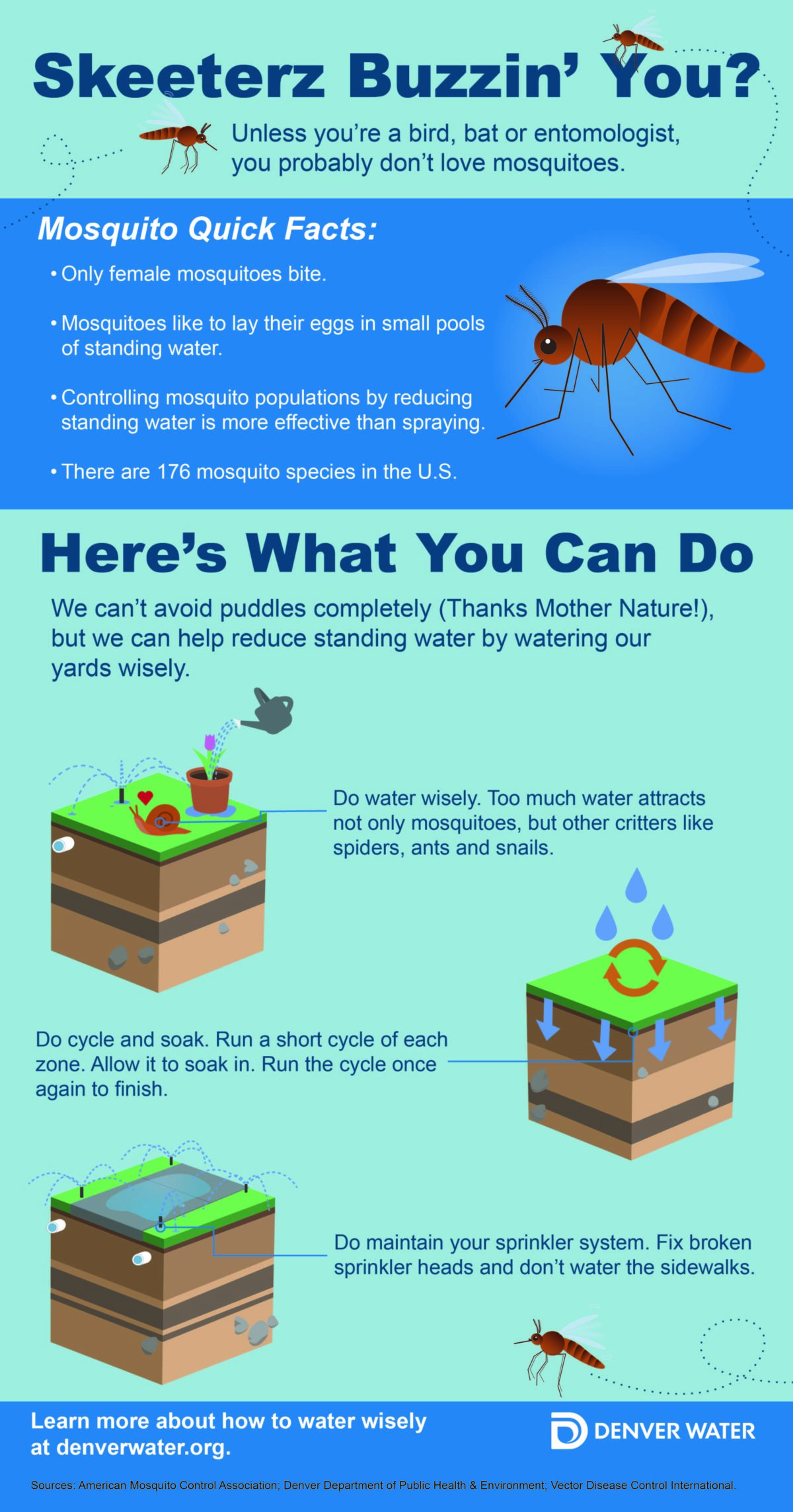
Skeeterz buzzin’ you?
Mosquitoes, those bloodthirsty bugs, will soon be buzzing around us throughout the summer months until fall’s first hard freeze.
But there are things you can do to reduce their numbers.
Chief among them, you can defend your yard against puddles of standing water — a favorite place for mosquitoes to lay their eggs.
Denver Water counsels customers to fix broken sprinklers and to water wisely, making sure the water goes on the landscape, not on the sidewalks, and — to recycle a famous phrase from years past — to use only what you need. (Check out our handy home guide to mosquito control below.)
As the owner and operator of large bodies of water (Denver Water has 12 major reservoirs that supply drinking water), the utility also follows best practices to curb mosquito populations.
Denver Water doesn’t use aerial pesticide sprays for mosquitoes, and there’s no need to at our reservoirs, where there’s usually enough movement in the water to prevent the mosquito larvae from surviving.
In other areas throughout Denver Water’s system where standing water can’t be prevented, mosquito pellets, also known as larvicide, are used for targeted control. The pellets are effective in small, still, standing bodies of water, like backyard fishponds, because they kill the larvae before they hatch.
For homeowners, preventing the problem before it starts is still the best bet.
The Centers for Disease Control and Prevention offers tips for controlling mosquitoes. And if you’re looking for tips on wise water use inside and outside your home, visit denverwater.org/bestpractices.


